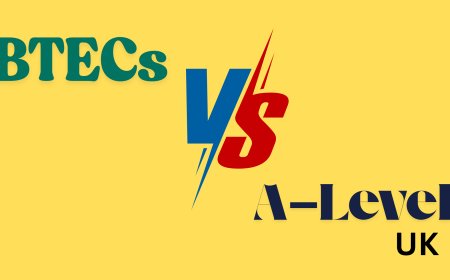Benefits of Coming to Canada for High School
Discover the top reasons international students choose Canada for high school. Learn about academic quality, cultural diversity, safe environments, and pathways to top universities.

The benefits of coming to Canada for high school encompass a range of academic, cultural, and career opportunities that attract international students from around the globe. Renowned for its high-quality education system, Canada provides a structured and inclusive learning environment governed by provincial standards, which ensures consistency and excellence across its schools.[1][2] The emphasis on bilingualism, with robust French immersion programs, not only cultivates language proficiency but
In addition to academic advantages, Canadian high schools offer rich extracurricular activities that foster personal development and essential soft skills such as teamwork and leadership. Research suggests a strong correlation between involvement in these activities and improved academic performance, making participation a vital component of the high school experience.[4][5] Furthermore, graduates of Canadian high schools benefit from streamlined access to post-secondary institutions, where they are often regarded as domestic applicants, thereby improving their chances of admission to competitive programs.[6]
Culturally, international students in Canada are immersed in a diverse and welcoming environment that promotes cross-cultural interactions. This exposure not only broad- ens students' global perspectives but also facilitates language exchange and cultural appreciation, essential skills in an increasingly interconnected world.[7][8] Many institutions implement support programs aimed at helping international students integrate into local communities, thus enhancing their overall educational experience and fostering a sense of belonging.[9]
Despite these benefits, international students face challenges, including language barriers, financial constraints, and cultural adjustments, which can impact their edu- cational journey.[10][11] The rising cost of tuition and living expenses, coupled with the need for support in navigating a new cultural landscape, presents significant obstacles that require attention.[3][11] Understanding both the advantages and chal- lenges of studying in Canada is crucial for prospective international students as they consider their educational options abroad.
Academic Advantages
Studying in Canada as a high school student presents numerous academic advan- tages that can significantly impact future educational opportunities.
Quality of Education
Canada boasts one of the best education systems globally, characterized by high attainment rates and a variety of educational options. The country's public education system is structured and governed by provincial and territorial authorities, ensuring a high standard of quality across its schools[1][2]. Canadian high schools provide modern facilities and a student-centered approach, fostering environments that support academic success and high attendance rates[1].
Accessibility and Bilingualism
One of the key features of the Canadian education system is its commitment to accessibility and bilingualism. The federal government supports education in both of Canada's official languages, offering French immersion programs in over 2,000 public schools[3][1]. This focus not only allows students to become proficient in both English and French but also enhances their employability in a multicultural society.
Extracurricular Opportunities
Participation in extracurricular activities is another advantage for students in Canada. Engaging in these activities helps students develop leadership skills, teamwork, and other soft skills that universities highly value[4][5]. Research indicates a correlation between participation in extracurriculars and improved academic performance, as students learn important time management and organizational skills[12][5]. More- over, Canadian universities often consider a student's involvement in extracurricular activities as a significant component of their application, which can enhance the overall appeal of their candidacy[5].
Preparation for Higher Education
The Canadian high school curriculum is designed to prepare students for post-sec- ondary education, providing a solid foundation for academic success in universi- ties and colleges[1][13]. High school graduates in Canada have access to various post-secondary institutions, where they can pursue diverse fields of study, further broadening their academic and career prospects[13]. The emphasis on practical, hands-on learning within the curriculum equips students with the necessary skills to thrive in higher education settings[13].
Cultural Experience
International students in Canada experience a rich and diverse cultural environment that significantly enhances their educational journey. Canada's commitment to mul- ticulturalism is evident in its vibrant campuses, where students from various back- grounds come together, creating an inclusive atmosphere that fosters cross-cultural interactions and understanding[9]
Multicultural Interaction
The presence of international students contributes to a dynamic educational land- scape, providing Canadian students with unique perspectives on global issues[7]. This interaction encourages the celebration of various cultural events and festivals, promoting a deeper understanding of different traditions and customs among all stu- dents[14]. Moreover, such experiences enable students to cultivate invaluable skills in tolerance and global awareness, which are essential in today's interconnected world[15].
Language and Communication
Engaging with peers from diverse linguistic backgrounds allows Canadian students to develop multilingual skills and enhance their adaptability in a globalized society[8]. Language exchange opportunities often extend beyond the classroom, taking place
Supportive Inclusivity Programs
To further enhance the cultural experience, many Canadian institutions implement inclusivity programs designed to help international students integrate into local com- munities. These initiatives often include peer mentoring, social events, and cultural workshops, all aimed at helping students adjust to life in Canada and celebrate the country's diversity[9]. Such programs play a crucial role in creating a welcoming environment where students can share their cultural heritage while also learning about the Canadian way of life[17].
Career Opportunities
Attending high school in Canada provides students with various advantages that can significantly impact their future career opportunities. One of the most notable benefits is the smoother transition to post-secondary education. Canadian high school graduates are often considered domestic applicants at universities, which can enhance their chances of admission to top institutions[6]. This familiarity with the Canadian education system not only prepares them academically but also helps them develop strong English or French language skills, reducing potential barriers in university-level coursework.
Moreover, Canadian high schools frequently have partnerships with post-secondary institutions that offer direct admission pathways to university programs. This arrange- ment minimizes uncertainty for students, allowing them to focus on their studies without the stress of applying from abroad[6]. The access to exclusive scholarships for those who have completed high school in Canada further incentivizes students to pursue their education within the country[6].
In addition to academic preparation, Canadian high schools place a strong emphasis on personal and professional development through extracurricular activities. Partic- ipation in clubs, sports, and community service can enhance students' university applications, as admissions officers seek well-rounded candidates who demonstrate leadership and commitment[12][5]. Furthermore, engaging in internships and vol- unteer work provides practical experience that is invaluable when entering the job market[12].
The experience gained during high school in Canada can also help students build networks and develop essential soft skills, which are crucial for future employment. As international graduates have indicated, however, the transition to the job market can come with challenges, including systemic barriers and the need for Canadian work experience[11]. Nevertheless, students who leverage the resources available in Canadian high schools, such as career counseling and workshops on job searching and resume writing, can effectively navigate these hurdles[2].
Ultimately, the combination of academic preparation, scholarship opportunities, and personal development fosters a conducive environment for students to explore di- verse career paths and secure fulfilling job placements after graduation.
Immigration Benefits
International students in Canada experience numerous immigration benefits that can facilitate their long-term residency and integration into Canadian society. One significant advantage is the pathway to permanent residency (PR) that international students can access upon graduation. Through specific immigration programs, such as the Canadian Experience Class (CEC), students can apply for PR status, leverag- ing the Canadian education they received to enhance their eligibility for permanent residency[18][19].
The transition from student visas to permanent residency has proven to be particu- larly effective; statistics indicate that between 2009 and 2013, the transition rate was 93% for principal applicants[18]. This trend underscores the appeal of Canada's im- migration policies, which prioritize the integration of internationally trained individuals into the workforce.
Furthermore, studying in Canada allows students to gain valuable knowledge about the Canadian education system, culture, and society, which can ease their adaptation process and improve their chances for citizenship application in the long term[19]. By establishing social and professional networks during their studies, international stu- dents are well-positioned to find employment opportunities post-graduation, further solidifying their status within the community[19].
The Canadian education system also emphasizes inclusivity and accessibility, mak- ing it an attractive option for international students. Admission requirements tend
to be more lenient than in other countries, taking into account various aspects of a student's background, thus creating a diverse and multicultural environment
that supports successful integration[2]. Additionally, universities and colleges are increasingly focused on providing better support for international students, includ- ing work-integrated learning opportunities, transparent immigration policies, and settlement services, which collectively enhance the overall experience and future prospects for these students[11][20].
Challenges and Considerations
While studying in Canada offers numerous benefits, international students face sev- eral challenges that can impact their educational experience and overall well-being.
Common Challenges
International students often encounter significant obstacles, including language barriers, cultural adjustments, and financial constraints. The language barrier can hinder communication and integration, while cultural differences may lead to feelings of isolation and difficulty in adapting to new social environments[10][11]. Financial
Financial Constraints
The financial aspect of education in Canada is particularly concerning. Tuition fees have risen dramatically over the years, with undergraduate students experiencing increases ranging from 5% to 10% annually in the early 1990s[3]. As a result, many international students struggle with the cost of living and educational expenses.
Although there are student loan programs in place, criticisms exist regarding their effectiveness and accessibility, particularly for part-time students and those with modest incomes[3][21]. The Canadian Federation of Students has raised alarms about the inequitable distribution of financial burdens among students, urging for a national system of grants to ensure equal access to financial support[3].
Cultural Adjustment
Cultural adjustment poses another significant challenge for international students. The transition from a familiar environment to a new and diverse culture can be daunting. Many students report feelings of culture shock and difficulties in establish- ing social connections[22][23]. Engaging with fellow international students and local communities can help ease this process, but overcoming initial barriers remains a struggle for many[11][21]. Furthermore, ethnocentrism can affect students' willing- ness to embrace cultural differences, which is essential for effective communication and integration in a multicultural setting[24][25].
Post-Graduation Challenges
After graduation, international students who manage to attain permanent residency still face hurdles in the Canadian labor market. Navigating job searches and adapt- ing to professional environments can be challenging, particularly for those lacking local networks or work experience[11][21]. The varying experiences of international students underscore the need for tailored support systems that recognize individual circumstances and provide appropriate resources[11].
References
[1] : Education in Canada: How to Choose the Right School?
[2] : Comparing Canadian and American Education Systems - Aquarius AI
[3] : Education in Canada: Current Issues (BP386e)
[4] : Benefits of Extra-Curricular Activities When Applying to University as ...
[5] : Five reasons you should get involved in extracurriculars in high school
[6] : Top 10 Benefits of Extracurricular Activities for High School Students
[7] : Understanding the Canadian education system and how it differs ...
[8] : Exploring the Cultural Differences When Studying in Canada - AEC
[9] : Impact Of International Students On Canadian Education
[10] : What are the advantages of going for high school in Canada ... - Quora
[11] : Chapter 7 Multicultural Education in Canadian Schools in - Brill
[12] : 4 Important Benefits of Attending a Public High School in Canada
[13] : Top 10 Extracurricular Activities for High School Students in Canada
[14] : 4 Tips for International Students to Help Adjust to Life in Canada
[15] : Benefits of Coming to Canada for High School
[16] : International university grads speak about aspirations and barriers
[17] : International students in Canada: A lesson from history
[18] : Advantages of Boarding High School Education in Canada
[19] : Canadian Education System: Benefits for International Students [20]: 5 Challenges Faced by International Students in Canada - Translayte
[21] : Importance of extracurriculars for admission (and a couple other ...
[22] : The Challenges Experienced by High School International Students ...
[23] : Adjusting to Life in a New Country: A Guide for International Students
[24] : Confucian or confusion? Analyses of international students' self ...
: [PDF] Improving the Assessment of International Students' Contribution to









































